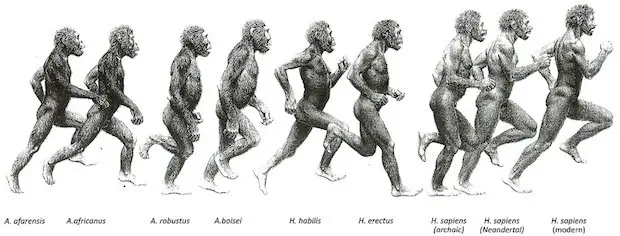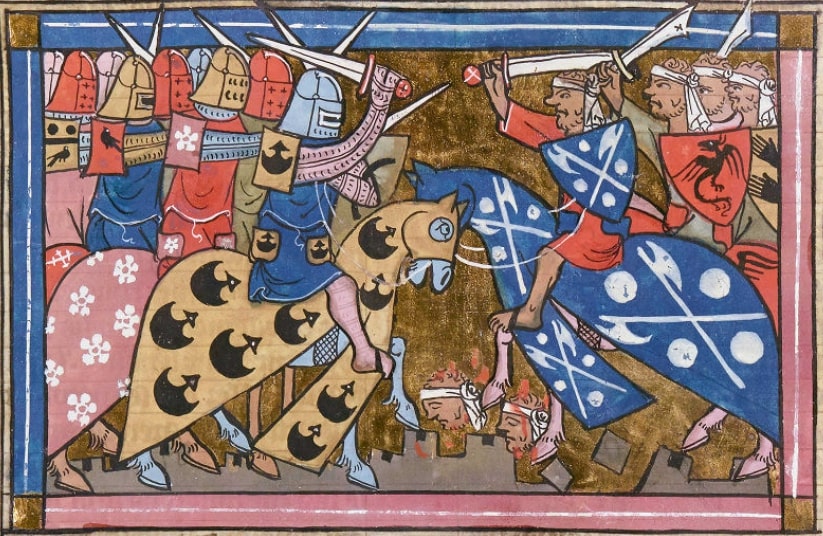 have come really far in the evolution tree as a species, however, besides gaining many abilities we lost one of the most vital things that kept our ancestor’s alive for thousands of years, that is, their fur. Without this fur, many of our ancestors wouldn’t have been able to survive the extremely cold winters.
have come really far in the evolution tree as a species, however, besides gaining many abilities we lost one of the most vital things that kept our ancestor’s alive for thousands of years, that is, their fur. Without this fur, many of our ancestors wouldn’t have been able to survive the extremely cold winters.
It is interesting to see this biological transformation for which scientists came up with many different theories as well as reasons, however, only three are considered the most plausible.
The first signs of hairlessness were seen about 1.2 million years ago with the Homo erectus species that started to lose more and more of their fur and develop their skin pigment. The most prolific researchers in this field are a team from the University of Glasgow that tried to simulate the living habits of Homo erectus to see if there is a reason for the loss of fur.
Parasite Theory
The first theory which is the most plausible is the one that blames some sort of parasite or virus for this loss. Our thick fur did keep us nice and warm for millions of years, but fur also attracts different types of parasites such as lice, flies, ticks, and other types of parasites.
The problem with these parasites is that they carry viruses that can be really harmful and deadly. Although this theory is contradicted by many historians which use the argument of Homo erectus and previous species to have had an incredibly strong immune system, that does not mean an impenetrable immune system.
In other words, this theory tries to explain that we have lost most of our hair in order to avoid these parasites. This begs the question of why we still have hair on our heads as well as pubic hair?
Mark Pagel, the head of the evolutionary biology group at the University of Reading, answers this question by stating that our head hair protects us from the sun whilst our pubic hair played the role of retaining odors for sexual attraction and enhancing pheromones.
Heat Theory
The heat theory, which is the simplest, describes that our loss of hair was caused due to the high temperatures in the African continent which was still inhabited by Homo erectus.
By losing our fur the human body was able to sweat a lot more allowing our body to cool down a lot quicker. This theory is also used to describe why we stopped walking on four limbs, as the ground retained heat keeping the body closer to the ground would have meant that the human body would cool down much slower.
Human origins expert Chris Stinger states that our ancient ancestors underwent an incredible biological evolution based on the habitat that they lived in for generations, with each generation adapting more and more to the environment based on temperature and humidity.
Another perspective of this theory is also that our ancestors starting to walk on only two limbs required more effort from the body, therefore our body was heating up a lot more than it was used to. This does contradict the perspective mentioned above, but it also has its own logic supported by the research done by experts at the University of Glasgow.
Aquatic Ape Theory
The third theory, and the least plausible in the eyes of experts, is based on our ancestors living a semiaquatic lifestyle. Food was difficult to find and most of it was found in shallow waters. As hair is an absolutely terrible insulator in water, biological evolution through different generations took place, slowly but surely removing our ancestors’ hairs.
This theory is somewhat questioned because our ancestors lived a semiaquatic lifestyle about seven million years ago and signs of hair loss were only present about 1.2 million years ago.
Once again this is also based on different types of researchers and hypotheses that may or may not come to be true. We can only theorize a plausible scenario that caused our ancient ancestors to lose their hair. It is imperative that we don’t imagine that this just suddenly happened to our ancient ancestors, biological evolution takes hundreds of thousands of years.
Avid Writer with invaluable knowledge of Humanity!
Upcoming historian with over 30 million views online.
“You make your own life.”





